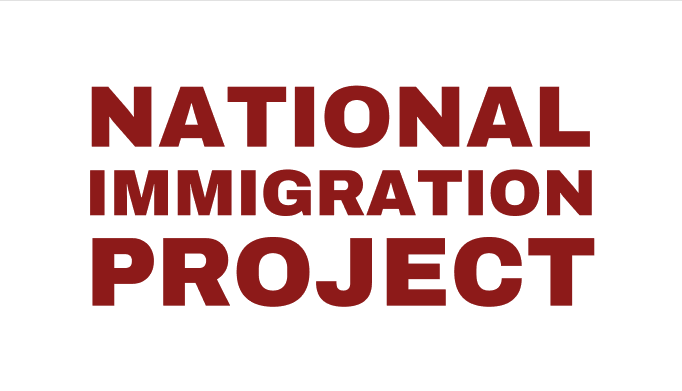
The Border Bill of 2024 died on arrival to the floor of the Senate, every news outlet having predicted its swift demise. As expected, Republicans rejected the bill after Donald Trump, the presumptive nominee, instructed them to oppose it because he wanted to run on the issue of the border. The bill would have given the executive frightening powers to exclude and expel asylum seekers, poured money into ICE and CBP, vastly expanded ICE detention, and gutted due process within the asylum system. Good riddance; but while the Border Bill is well and truly dead, we could be haunted by its ghost.
Almost immediately, several think pieces ran worrying that what lawmakers offered up in the Border Bill would become the baseline for all immigration legislation negotiations going forward. Historically, electeds approaching immigration reform have been willing to trade concessions on enforcement for legalization provisions. The Border Bill defied this convention and abandoned any sort of large-scale legalization measures, instead endorsing as “measured” and “reasonable” and “necessary” extreme policies with roots in the Trump era, while offering only the most minor of policy “wins” as a balm. The bill contained no path to permanent status for DACA recipients and others who arrived as children, TPS holders, or farm workers; no broader program for the full population of undocumented people in the U.S.; no fixing the backlog for youths with Special Immigrant Juvenile Status; and only a small increase in available visas – nothing that would clear the backlog for people from Mexico, China, India and the Philippines who have been waiting for decades to rejoin their families. This, a chorus of voices warned, could be the new starting point, the new status quo, every time Congressional negotiators come to the table.
The Border Bill is a failure on every metric. After months of negotiations, its Senate authors pleased no one, angering progressives and leaving conservatives unswayed. It did not even gain a simple majority of votes, let alone clear the filibuster bar. And, most importantly, it abandoned immigrant communities in need of serious and urgent Congressional action. Why then, would anyone celebrate this lead balloon of a bill? Why would it become the new standard, and not simply a regrettable lapse in judgment?
There are several reasons, but primary among them is that President Biden and his supporters believe the Border Bill gives them the rhetorical upper hand: President Biden has repeatedly emphasized that it is the Republicans’ political maneuvering at the behest of Donald Trump that is “preventing a secure border.” Many also perceive the Border Bill as going on the offensive when it comes to immigration, rather than ceding that position to the right wing. Pundits likewise see Democrat Tom Suozzi’s recent upset victory after taking a hardline stance on the border as providing a “new playbook” when it comes to immigration.
All of this is deeply troubling. Rightly or wrongly, both parties will likely conclude that any electoral gains they make in 2024 stem from their hard right turn on immigration. A far cry from the hopes of early 2021, the next few years could yield harmful, hate-fuelled, rightwing immigration policies no matter who is in power.
Anti-immigrant politicians have barraged the media with “border crisis” messaging for years now, and it has had an effect. Recent Pew study found that 78% of people polled, regardless of party, believe that migrants entering the southern border is either a “crisis” or a “major problem,” and likewise 80% of respondents of both parties disapprove of the federal government’s current handling of the situation. But their reasons vary, as do their proposed solutions; indeed, I also do not approve of the administration’s actions.
I do think there is something to the idea that playing offense appeals to people. The narrative that the U.S. immigration system is “broken” is by now a tired trope; we have been stuck for so long that even its more progressive iterations (it’s not broken, it was designed to exclude, etc.) have become cliche. It is an open secret that both parties stand to benefit from keeping the system stagnant and the issue alive, whether to inflame a nationalist base or to hold a voting bloc hostage. People across the political spectrum are tired of politics, and it makes sense that candidates and electeds who appear to be serious about making changes are also making headway with public opinion.
Clarity, coherency, and confidence all make a message more persuasive. People believe there is a problem; they also want to believe that their leaders believe in the solutions they’re proposing. But I would argue that the manner of delivery in this context matters as much as the content of the policies. That Suozzi’s approach resonated does not guarantee the quality of his ideas. Perhaps he provided a playbook, but it should be a style guide, not a policy whitepaper.
The policies currently on offer from both parties, exemplified by the Border Bill, are bad. The Bill would have granted executive authority to broadly deny entry in times of “emergency,” creating a perpetual state of crisis and a self-fulfilling prophecy, as the number of people waiting ballooned. Thus it would replicate some of Trump’s illegal and inhumane policies, including the Migrant Protection Protocols, Wait in Mexico, and Title 42, which created the current bottleneck at the border and which continue to inflate the number of people attempting to cross now. Beyond the border, enforcement-heavy approaches all share the same underlying, demonstrably false assumption: that enforcement has any deterrent effect on immigration. Rather, climate change and violent turbulence, both directly caused by longstanding U.S. policies, push more and more people to flee their homes and make a desperate attempt to find safety here.
What if members of Congress offered responsible and humane immigration proposals with the same conviction with which they put forward failed and violent “get tough” policies? After all, a majority of people, both Democrats and Republicans, believe that we should offer more pathways to immigrate and the opportunity for undocumented people to regularize their status. What if electeds told the truth: that welcoming newcomers and ensuring their basic needs are met – and providing sufficient funding to do so without straining state and local services – would cost far less than thousands of CBP and ICE officers, not to mention their arsenal of weapons and spy equipment, all of which Congress seems intent on growing year after year. What if our leaders stopped playing politics with immigration and instead made the U.S. better both for immigrants and the communities they call home?
Rather than the new normal, the Border Bill must be the rock bottom. It’s time for a change, and our policymakers need to heed the call for a different approach to border issues.
